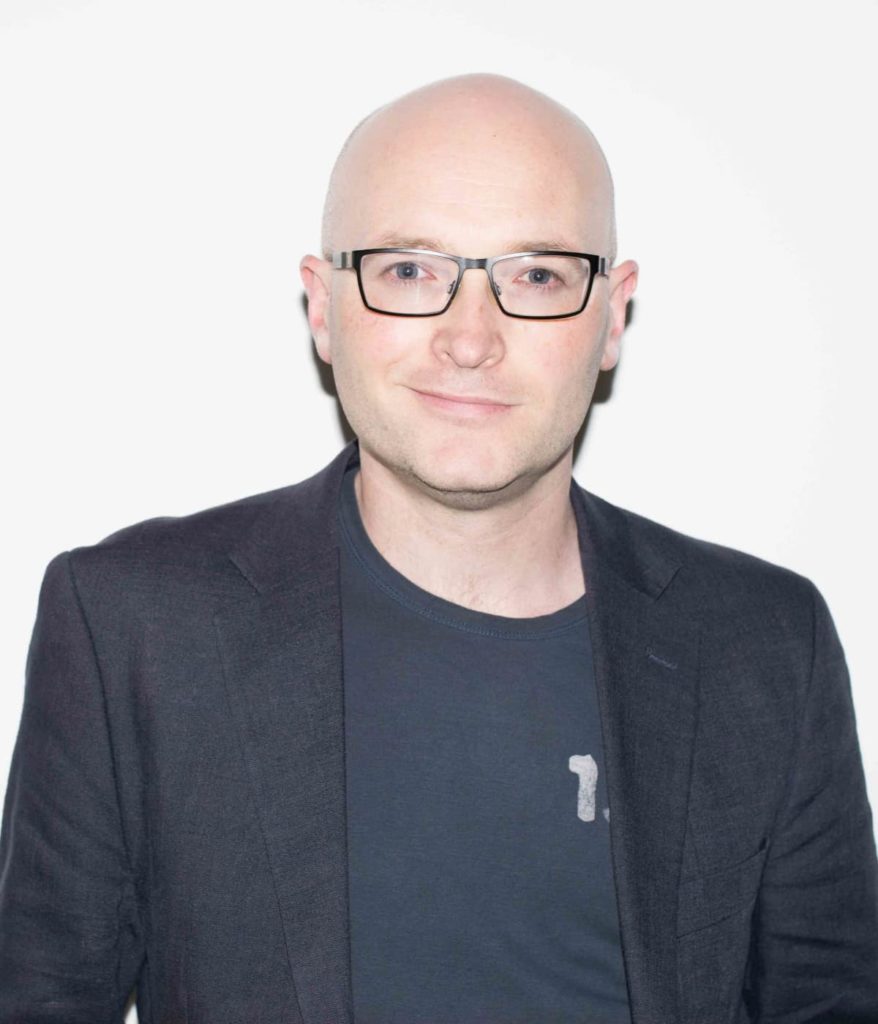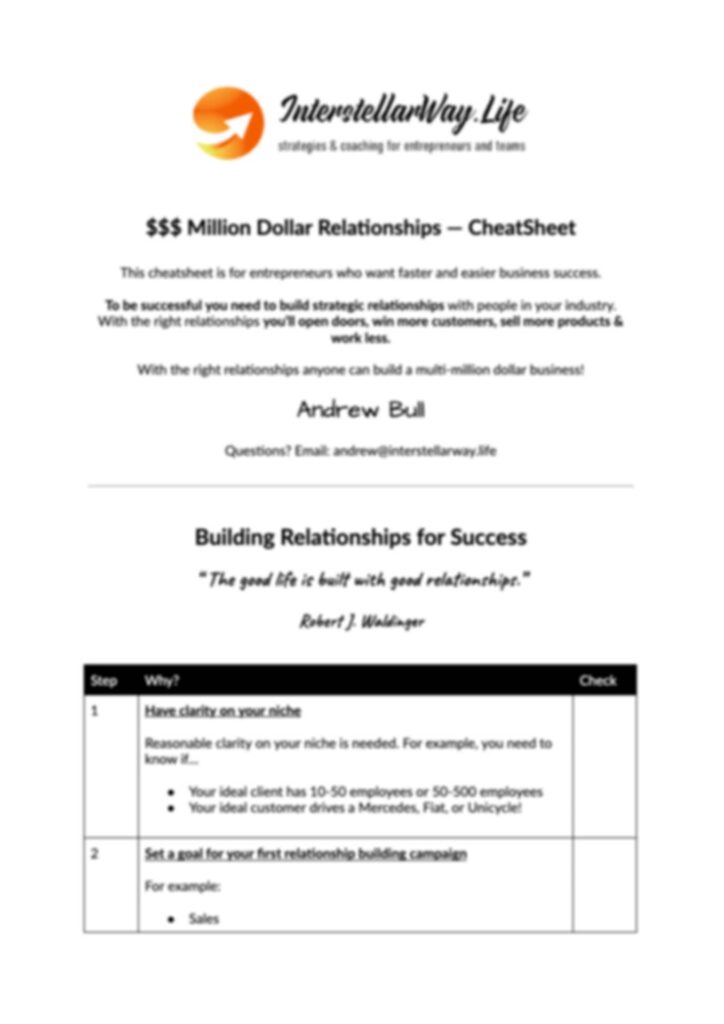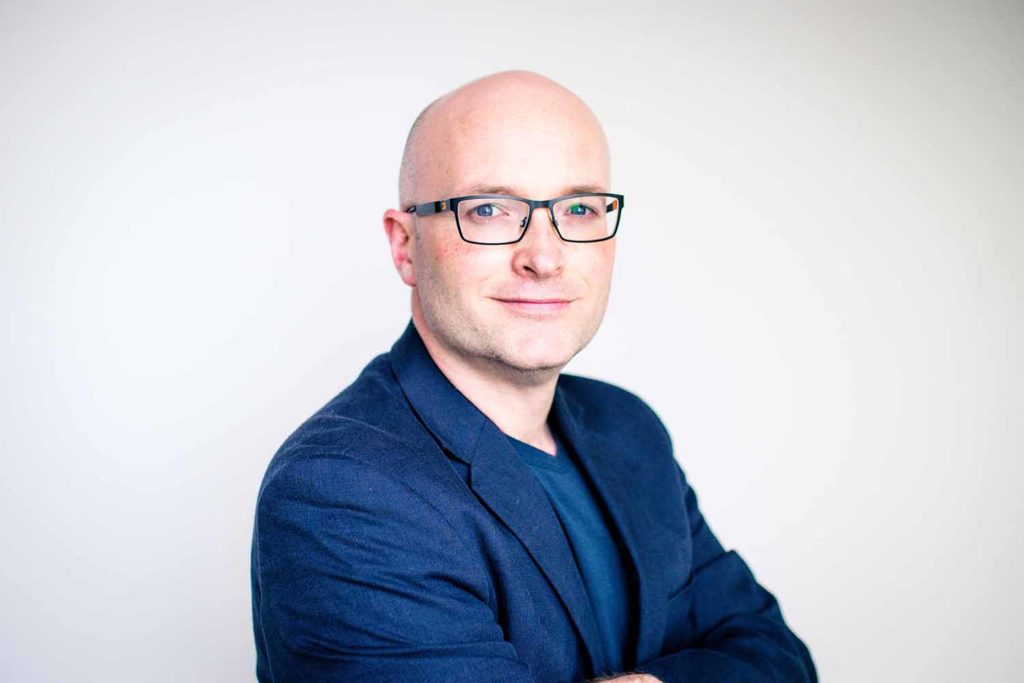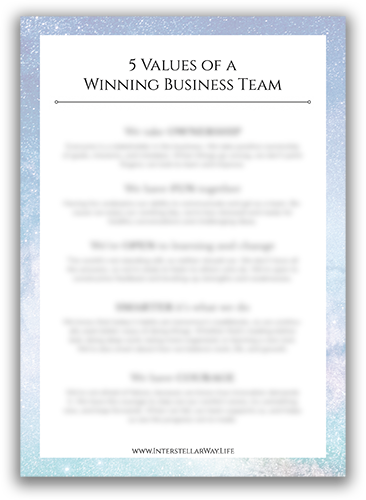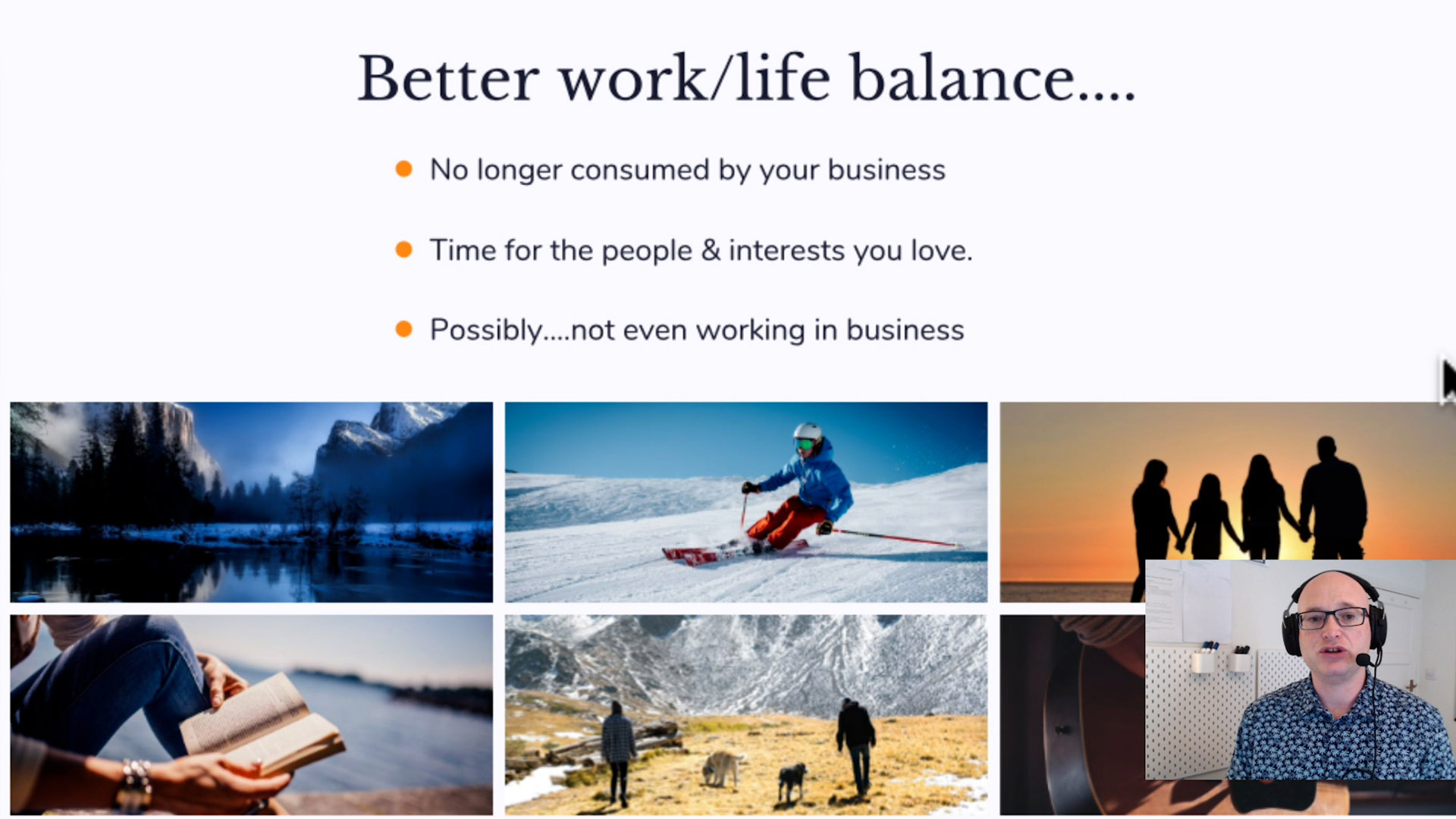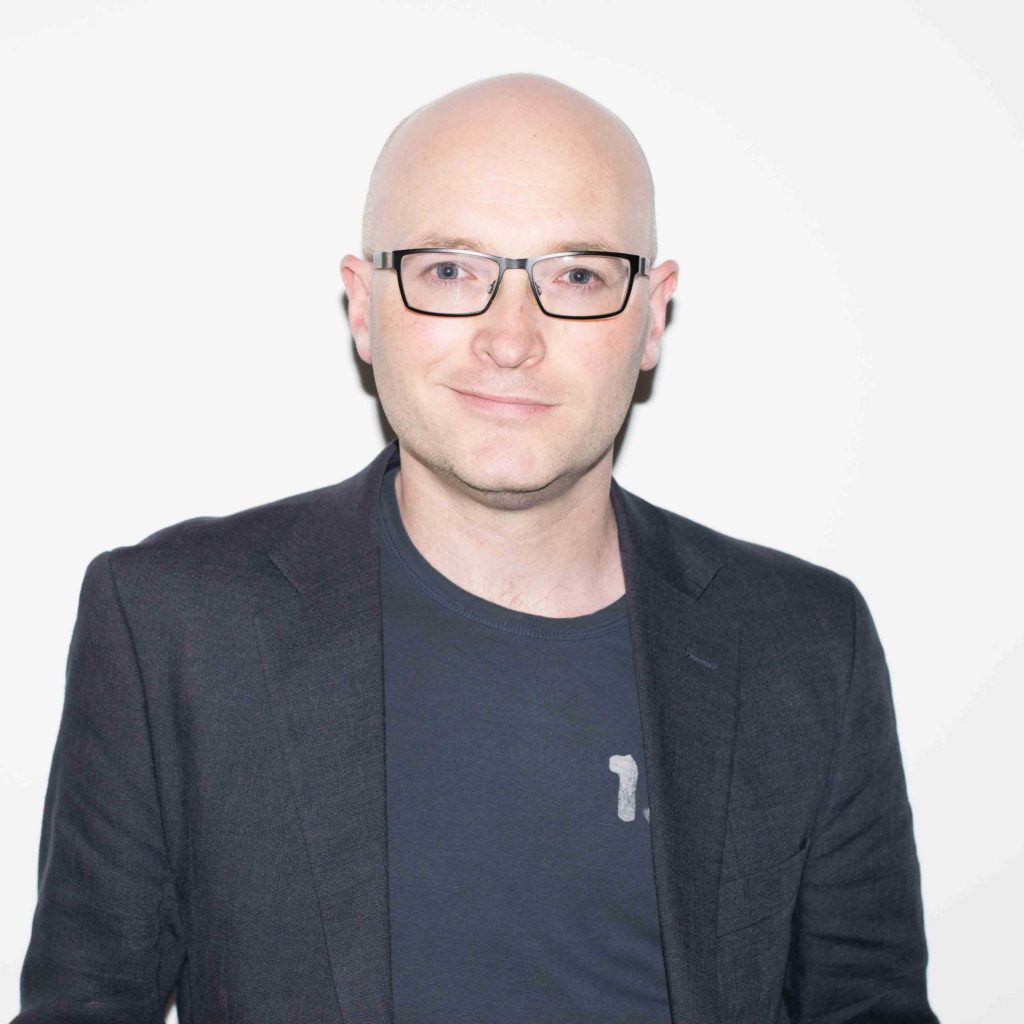Interstellar Business Show
Podcast for Technology CEOs and their teams.
It's time to grow your mind, elevate performance, and own your future 🚀
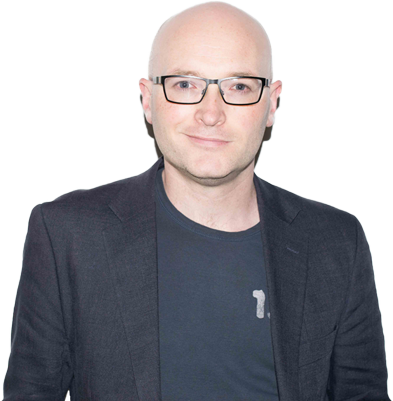
Interstellar Business Show
Episode: 0016
High impact speaking: Lisa Evans on cutting the 'fluff' and delivering the 'good stuff' in your next speech
Featuring....
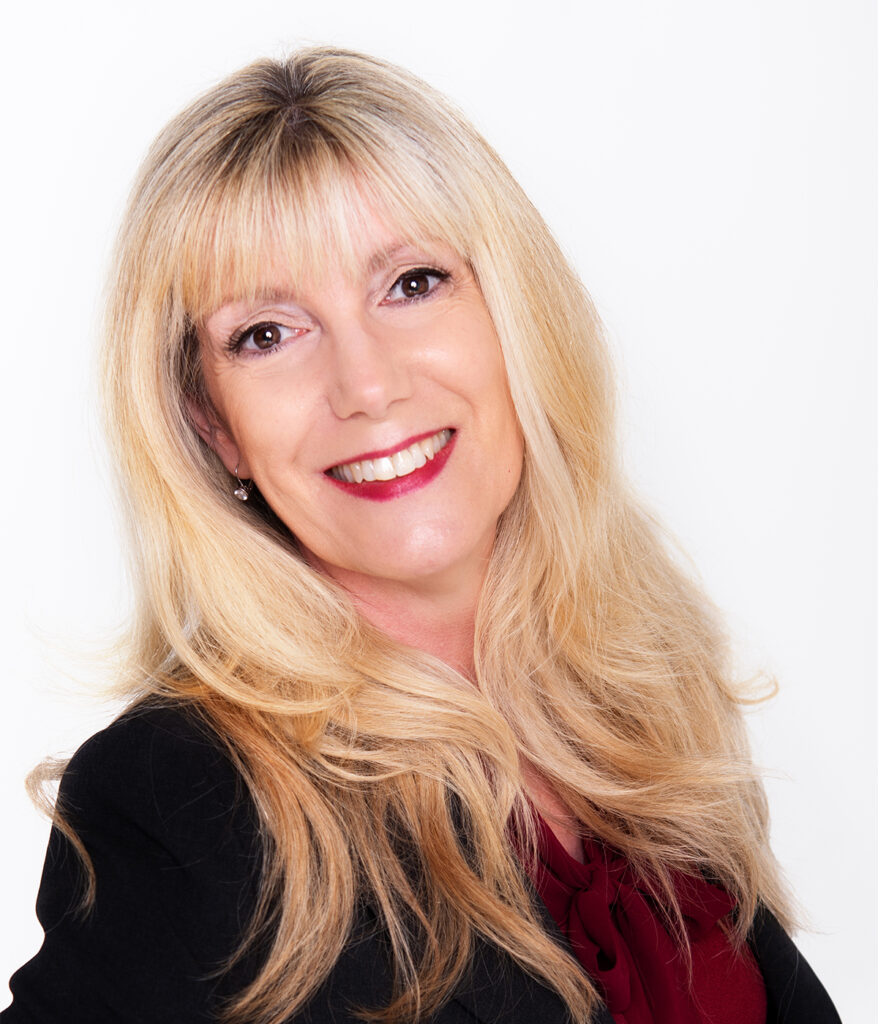
Episode Introduction
75% of individuals suffer from anxiety around public speaking.
Can you overcome it?
Yes, you can… In this episode Lisa Evans (speaking coach) shares how she overcame her speaking nerves and gave her first speech. Plus, we talk about scheduling ‘you’ time, scalable legacies, and what not-to-do when delivering a presentation.
Lisa Evans. is a speaker coach specialising in helping people make a difference with high impact public speaking and business storytelling skills. When she is not coaching, she is podcasting or hanging out with her retired racing Greyhound named Giraffe.
If you love this episode, don’t forget to subscribe.
Episode notes & resources
Love this episode? Please leave a review here
Listen to more episodes here: Interstellar.Show
More about Lisa Evans…
The awesome resource Lisa mentioned in the episode is here: https://www.speakingsavvy.com.au/rock-your-talk-download/
Lisa’s website: www.speakingsavvy.com.au
Podcast:Business Chat with Lisa Evans
Transcript
Please note, this transcription is autogenerated, so there may be errors.
Hello. Welcome to another episode of the interstellar business show. My name is Andrew Bull, and I’ll be your host and guide on this journey of growing, working and living smarter. Now, this podcast is especially for Tech CEO s and their companies were going to be sharing the big ideas and breakthrough insights that will help you grow and elevate your mind and your business. Today I’m joined by Lisa Evans, who is a speaker, coach, an expert in public speaking and presentation. And she’s going to be sharing some big ideas that I know you will find very helpful. Now, if you haven’t already subscribed to the interstellar business show, take this time now to hit that subscribe, follow or like button. So you can be sure that you never miss one of our episodes again, Right? Let’s get cracking. So welcome to another episode of the Interstellar Business show. Today I’m joined by Lisa Evans all the way from Australia. Thanks for joining us today, Lisa. You’re welcome, Andrew. Great to be here. So even though you’re all the way from the other side of a very, very big lake, not a pond shall we say Do you serve the whole world as well? Absolutely. Yeah. With the online tools that we’ve got these days, I can coach anywhere, and obviously some time differences are better than others. But yeah, through the wonderful tool of Zoom Skype teams, you name it. I can use that and work with people from wherever they are, which is awesome. I love it on your bio. You describe yourself as a speaker coach who specialises in helping people make a difference with high impact public speaking. What is high impact? Public speaking? It’s public speaking. That gets results that actually gets a message across in a way that others are interested in listening to. Anyone can get up and speak. We speak all day. We’ve been doing it ever since we learned to talk. But not everyone can do it well. So what I mean by high impact is that every time you stand up in front of an audience, you have people who are genuinely interested in listening to what you have to say. And more importantly, they are taking action. So you’re really getting to hold the room to start with and then move the room towards actions So we’re really talking about the difference between getting information out to getting information through, which is where we move from information to influence. So we want to be able to influence through the power of spoken word. That’s fantastic. I’m loving where this conversation is going already, but let’s hold that thought for a moment. So Lisa is a specialist in public speaking business stories telling skills, and we’re going to get into more of that during the rest of the interview when she’s not coaching. She’s also podcasting. What’s the name of your podcast? Lisa Business check Podcast with Lisa Evans. Okay, so check that out next time you want to listen to a new podcast, and she’s also got a Greyhound to name giraffe, which must keep you active on your toes. But let’s move forward now with haste and speed into our first segment. Have courage in this part of the show. We ask our guests to lead the way by revealing a secret of fact about themselves. So what lighthearted secret? Don’t people know about you, Lisa? So I once had a job where I one Friday afternoon, after about eight weeks of working there I couldn’t stand it any longer and I put the keys in the drawer with a note and I walked out and I never went back. So I resigned from my job without saying a word to anybody. Wow, what? That that was a courageous thing to do what was going through your head at the time. You quite a quite a rational decision or quite an emotional decision. I think it was very irrational and very emotional and it’s probably not good for my brand and my career, but at the time it was just seemed like a good thing to do. It wasn’t a right fit for me from the beginning. I probably shouldn’t have accepted the the job. It was for a project startup team and the person who was my manager, who had got a job that I didn’t even apply for. She had far less experience than I did, so not only was I learning a new job, but I was also training my manager so it was not ideal. But I probably could have handled it a lot better than I than I did something that I’m not proud of and that’s why I thought I’d dig deep when you asked if I could share a secret. They will thank you for being so honest and courageous, and I think we’re all on this journey of growth together where you know we’re not perfect or infallible, and it’s good to be aware and be able to reflect on the things that we can improve moving forward. But I think it’s it’s good to be honest and and up front about these things as well. So thanks for that. So let’s jump forward into the next part of the show growing smarter in this part of the show, our guest share big ideas and fresh perspectives that will help you grow your mind and your business. So what is this big idea that you want to share with us today, Lisa. So the big idea that I’d love to share with your listeners Andrew, is it’s a big idea, but it’s actually pretty simple, and that is, if you are not out there speaking about your business, then you are leaving money on the table, and I find that there are a lot of super smart people who are not out there speaking, you know, they’re pouring money into Seo or they’re doing Google AdWords or they’re doing other things to market their business by the one thing that they could be doing, which is free to do. And if you’re good at it, you get paid to do it is go out there and speak confidently and clearly and compellingly about what you do and how you serve others. So would you say, then that there’s sometimes a false belief or idea that we can do Facebook ads or INSTAGRAM ads these quick and easy ways to promote ourselves? And sometimes that seems like the dream, because in an ideal world we set up our Facebook campaign. We pour money into it, and money comes back at 10 times to return on what we’ve invested. But that is often a bit of a fantasy. It’s like the get rich quick thing kind of, whereas doing something like talking where you have to invest in educating yourself to to a level and probably the listeners on this show already very well educated in the in their subjects, but also educating yourself on how to deliver and then putting the effort into getting out to your audience that that’s really what we should be focusing on, moving away from some of these false stories of of quick winds with advertising. Yeah, and I think you’d be pretty lucky if you put money into Facebook and you get 10 times that much back. I’ve always I’ve always used. The analogy of Facebook ads is like going to the casino. It’s sort of potluck, and you talk about having to learn the skill of speaking. You’ve got to learn the skill of doing Facebook ads properly if you’re going to do it at all. And I think that these days of the modern business owner does need to be able to have a spread and be across B across all types of media but never underestimating the power of standing up in front of people, particularly if they are your ideal clients and sharing a message sharing your knowledge. You know, speaking is serving, and we’ve all got wisdom and knowledge and expertise, and when we can package that up in a compelling talk, it doesn’t have to be super long, 45 minute guest speaking appearance can can really reap benefits and speaking doesn’t cost you anything to do. It’s easy enough to get guests speaking opportunities, and there are also opportunities where you can be paid to speak as well. And at the end of the day, businesses is human to human and even more so. Since covid we crave human to human connection. We can’t get that through a Facebook ad. Yes, we can tap into emotional buying, but there’s nothing quite as powerful as standing in front of a live audience and speaking. Yeah, and you get that kind of electric kind of connection on many levels with people, because even now we’re talking and, well, some people would just be listening to this maybe on Spotify or Apple podcast. So you’re just hearing what we say. That’s one form of communication and and I suppose, the gaps between the words that were saying kind of maybe another layer. Maybe you’re watching on YouTube, in which case you’ve got some visuals. But then, if you’re in a room with someone, you’ve got kind of those other senses as well, almost like that animalistic connection with other people. Is this crazy or is what I’m saying, actually making sense later? It’s making absolute sense. You’ve got a different energy in the room when you can really use your presence and your energy and your charisma. It’s very hard to get that across the screen when you are at best, a bobbing head. Even if we stand back, which we can’t when we’re on a podcast, it’s It’s primarily about the quality of sound, so we’ve got to be up close with our mike. But even if we got up and was stand were to stand back a little bit at best, you’d still only get the top half of you. And yet we communicate with our body from the bottom of our feet, right to the top of our head. And that’s why it’s so hard to do that effectively on a zoom call or in a webinar setting. When we’re in person with somebody, we can read the room. We can feel the room, we can alter our energy and our presence, and we can get that connection. We can get it on a much, much deeper level. And so if I’m a tech CEO and I want to get my story out there, are there things that I shouldn’t that I want to focus on getting right and things I want to focus on not getting right when I get into the world of speaking. Is there some typical pitfalls that people like find themselves tumbling into when they start out? Yeah, absolutely. The most common one would be the curse of too much information. We do it from a place of good intent. We want to share all our knowledge and tell everybody about all the stuff and all the things. But when we cram information in, we push our audience out so often it is keeping it really simple. If you’ve been given 15 minutes to speak, then it’s 15 minutes to speak. It’s not going over time. It’s not speaking too fast. You want to be able to make sure that you understood. You want to speak at a nice rate and rhythm, so keeping it simple, keeping it down to one big one big idea. One big theme and perhaps three points three big chunks of information and then transitioning between one chunk to the other chunk, making sure that you start off strong and you also finish strong, and I find that most people understand that we need to start with a hook. We’ve got to get people in early so that they want to listen to what we have to say. But often what happens is people fizzle out at the end, so they start off strong. They put some great content in the middle, and then they say, That’s all I’ve got time for I thank you very much, Buy it and you’re like, Oh, we finished And they don’t spend as much time closing off that talk with a really powerful ending and a quarter action. They fizzle out at the end. So that’s another thing. Not having a structure. So having a whole bunch of thoughts and ideas, but not clearly put together in a structure and a structure is great for two reasons. It helps you as the speaker know where you’re going next, without having to rely on notes or memorising any material. And it also helps your audience navigate along the way. When we are the speaker, we don’t want our audience having to work hard at wondering where we’re going with our message or what’s this all about. We want to make it really easy for them, so we present them with a bit of a roadmap, so they know exactly where we are going. And the other thing would be for tech People is making sure that you are not giving them too much geek speak or too much sort of technical information, particularly if they’re not technical people. So are they familiar with your your acronyms and your codes? If not use very, very simple language. And if you’re speaking with people who are non technical and you’re trying to get across technical concepts, then think about using the power of a metaphor analogies, short, simple stories and powerful sensory language and visual images to get your message across a lot easier. Those are wonderful bits of actionable ideas that you’ve shared. So thank you for that. And the one I would hone in on there was giving people like a road map at the front of your presentation. So you want to do that? A couple of slides in. Maybe after your initial hook, you want to take them through the road map of what you’re going to be talking about uncovering, is that right? Yeah, the road map is more for for you. It’s not for sort of announcing. Obviously, I like to start off with what I call the big promise. So the big promises what’s in it for them, right? So I might say something like by the end of our talk today, you’ll walk away with three practical tips to take your speaking skills to the next level in this episode today, if we’re talking about a podcast, so we’re sort of telling them the outcome if you like. But we’re not necessarily laying it all out. Okay, Wonderful. That makes that makes sense. And what what’s different about your approach than it when it comes to, um, public speaking and helping people with that? Is it quite story? Focus, then, Yeah, I do have a fascination for for storytelling, and I encourage everybody that I work with. I work mainly with senior leaders. I encourage them to use stories wherever possible, stories to help help enhance their data stories to help them unpack their data to really bring people along on a journey. So, yes, we want higher impact public speaking and presentation skills, which means, you know, being able to articulate your words and put together your slide deck and body language and all those things. But the story will take people on a journey. And master communicators are always great at storytelling, so it’s definitely a skill worth learning. Okay, so I’m going to put you on the spot right now. If that’s not too inconvenient and ask you, can you tell me a great story related to public speaking and how it’s helped either yourself or maybe a client or someone you’ve known? Okay, so I can tell you about the first time that I found myself in front of a room full of people. I was a student midwife back in many, many years ago, and we used to have something called antenatal classes. So this was would be where the parents to be would go along and learn all about pregnancy, having a baby looking after a baby. This was way before the internet. So you either learn this thing through a textbook or through going to these classes. And my role as the student was to observe the midwife, the senior midwife, and to put out the chairs and to make the tea. That was my role. And on the night on this particular night, the senior midwife who was running the session. She got called away for an urgent delivery. So there I was, left literally holding the baby at the front of the class. There would have been about 50 wide eyed parents to be sitting on bean bags in front of me, and this was the lesson where we were educating the group around the birthing process. So I’m standing at the front. My teeth are chattering. My knees are knocking. I’ve got a rag doll baby attached to this, uh, placenta with this knitted umbilical called and a skeleton pelvis. And I’m trying to explain how this baby fits through this pelvis. Now I was shaking so much that I ended up dropping the pelvis on the floor, bounced off in one direction, the babies hanging from the knitted umbilical cord and by the look on the faces of these people in front of me, I could tell that they were thinking, Oh my God, what have we let ourselves in for? Let’s hope she’s not the midwife when we turn up to the session, it was I just felt like I wanted the ground to open up and swallow me. I did an absolute terrible job, and luckily I got to keep my job. I didn’t lose my job over it, but that was my first experience of speaking in public. Absolutely terrifying. And I share that story. Andrew, when I am speaking with people who are perhaps in a similar situation, So they are nervous beginners or they have a fear of public speaking. And I share that story to really get across that you know, I know what it feels like. I’ve been there too once, because if I get up on stage or in front of a group of people and I start speaking or sharing or sharing my knowledge, then often you get this disconnect because the people in the chairs are going to be thinking I could never be like that. You know, I’m a nervous beginner. I don’t know where to start. My knees are knocking, my teeth are chattering. So I tell that story so that people can relate to me as having been someone who has started just where they are right now. So your story always needs to be very relatable. It needs to be relevant, needs to be real relevant and relatable, so different audiences will be a different starting story. But I will often use that story of my first terrible public speaking experience to newbies to new people who I know are nervous. That makes so much sense. That’s brilliant. What wonderful, wonderful story. And, yeah, we’ve all been there on stage for the for the very first time. Yeah, I remember. I remember I did a talk, Uh, the B f i or this big film institution in London and actually, I sat on the stage for, like, 45 minutes as part of a panel, so it was actually wasn’t a talk, but it still wasn’t on stage as part of a panel. And I had to wait for, like, half hour and just waiting for anyone to ask me a question. And I was sat there nerve, completely nervous the whole time. And then they end up asking me one question which I thought was hilarious. So it was a very stressful experience for not actually much result in the end. Anyway, there we go. So how can CEOs take easy first steps with this idea? How can they start telling better stories and improving their presentation skills. Well, to become a better storyteller, you’ve got to become a better story listener, first of all, and there is story material, just about everywhere and often People tell me I’m no, I can’t tell stories because my life’s ordinary And they are the best stories, simple stories, ordinary stories, stories that can help illustrate a point. And they can be completely different to the point you’re trying to make. So let’s say, for example, somebody wants to illustrate a customer service example. Then you don’t need to have a customer and a service experience in the story. You can think laterally. Some of the best stories are lateral, so a trip to the shops queuing in the cinema, a weekend camping away with the kids. These are all rich storytelling material. Where you discovered something, you learn something. You found out something about yourself. There was some kind of a change or a transformation. So start collecting your everyday stories in a story bank and then start to think about the structure of a story. Now you would have heard of the story arc you would have heard of, maybe Freytag Pyramid or Joseph Campbell’s Hero’s Journey you know, they’re quite complicated in terms of a story structure. So I like to say we’ll remember your story has a beginning, a middle and an end. You want to start off with a very short context, and then you want to get into the problem. And you need to remember that by the end of the story, the main character is always different than they were at the beginning. So a story is evidence of a transformation that’s taken place. And the other thing for business leaders to consider is, Who are you going to cast in the role of hero in your story? And look, some leaders cast themselves in the role of of Hero, and I guess that’s okay if it’s your story. But in the business setting, I find that it is, uh, much better. It comes across better if you cast somebody else in the role of hero, and obviously, for the business owner or the business leader, the ideal person would be the end user or the client or the customer. And then your role in the story is as the mentor or the guru or the guide, the one that has the software solution or the one that has the new product. But it’s the end user you want to put up on the pedestal and showcase how they changed as a result of you helping them with your system or your product or your your service. Yeah, I think that’s a a really powerful idea, the idea of transformation because that’s ultimately what people buy, whether you’re buying some perfume or whether you’re buying a complicated I t. Solution, you’re not buying the nuts and bolts or the water and the chemicals you’re buying into that story of transformation, of how I’m going to be better once I’ve bought this product. And also with that, we need to remember to keep it simple and to really focus on those those benefits and explain it in a simple way. And the the one that always sticks in my mind is, you know, when Steve Jobs introduced the iPod, you know, he didn’t go into how much storage it has. And so he literally pulled it out of his pocket and he introduced it as 1000 songs in your pocket. Well, like, yeah, we all want that. Yeah, totally. Yeah. Yeah, it is the big end result that people are going to get and not around the tech, because as hard as it is to accept it, people don’t really care about are nuts and bolts. They just care about what they’re going to get, Uh, zig, Ziegler said. You know, the greatest radio station in the whole world is what’s in it for me wi I FM Greatest radio station. So that’s what that’s what we’ve got to focus on that story of transformation that helps the individual. Let’s talk. Let’s move on to the next segment because this is a great place to do that working smarter In this part of the show, our guests will share insights about business and team performance, leadership, development and productivity hacks that you can action in your business. But what’s the smart way of preparing your speech and and putting your hours in? Should I be spending hours and hours finessing every word of my speech? Or is that a dangerous route to go down? I personally believe that it’s a dangerous route to go down. I don’t memorise speeches at all. I internalise them and I’m very visual, so I do my mapping. I do sketch noting, So my talks are always sketched out, and I then see them as a little movie. So part of my preparation is that visualisation the power of visualisation. So I actually see myself telling the story. I see images. I see shapes. I see icons and even even words, but we all learn a little bit differently. But the danger is if we write our talk out word for word, and then we go and stand at the front. The chances are we’re going to revert back to reading out loud, and we don’t ever want reading out loud. We want an authentic talk that is shared more from the heart and less about being word WordPerfect. So I do have a template called Rock. Um, I’ll just tell you what the letters stand for, and then people can grab the template if you’d like me to share the link with you. So rock is our for relevance, which answers the question of the So what? Why should they care what’s in it for them? W II FM O is for outcome. We’re beginning with the end in mind. It’s much easier to craft a presentation. When you know what the outcome is, where you want people to land. The sea is for clarity, making sure everything is clear, your words, your message or slides, any props you might use. And the K is for the key message. So if you work on the premise that people will forget most unfortunately, most of what you’ve said, what is the one thing that they must walk out the room with? Or in other words, if your talk we’re a bumper sticker, what would it say? What would be the 10 words or less? What would the tweets say if it was? If your talk we’re a tweet, and having that formula really does help you stay on track with the content that goes in the middle, I always suggest, you know three main points or three big chunks with a nice transition from one chunk to the other and then focus on the open and close. So let’s move on to the next part of the show, living smarter on this part of the show. Our guest shares how they’re trying to balance business growth. They’re working day and personal life for them and their team How do you manage to set a work life balance and find time for yourself? Well, I had a big shift in my mindset after Covid hit because my world changed drastically prior to Covid. It was, you know, 15 star hotel after another and the airport lounge and I was on this sort of hamster wheel, and I loved what I was doing. But it was only when I stopped doing that when everything ground to a halt that I realised how much I like my own bed and my own time zone and that I’d actually been neglecting certain areas of my myself and my self care. So I began to make little changes and to shift that balance back. And I started to 11 major thing that I did was I started to schedule in time with myself directly into my calendar before anybody else has access to that, which is easy to do. I’m a team of one. My support team are outsourced, but my clients to have access to my calendar. So even things like walking, reading, going to the gym, they’re all factored in. So I’ve set appointments with myself, so it’s not something that I might go for a walk today if I’ve got time. Or maybe I will or won’t go to the gym class, it’s already factored in. So I’m working my appointments around that. I find personally that I have a bit of a slump about three o’clock in the afternoon, and I think that’s a common time. So I work best in the morning. I get up super early, I do some work, and then I find that I need to take time out between one and three and recharge a bit and then come back for more. So I guess it’s also about finding out when you do your best work, whether you’re a morning or a late person, and then scheduling it in so that you get back control over your calendar rather than let your calendar control you. So one of the reasons I think people don’t do what you’re doing Lisa and they don’t book time into their calendar for themselves is that they’re not valuing it. They value their work, they value their business activities, but they don’t see working out or taking time to have a break or go for a nice walk or just to rest as a valuable thing to do so they don’t book it in. So I think if if we as business leaders, uh, can actually change that perspective and actually see that these these things actually have value and they’re really important and that we can only perform our top levels when we’re actually well rested and and we’re taking care of ourselves. These are things that we can just put off until some perfect day arrives, because the reality is that perfect day will probably never arrived. So you need to take action with your calendar now and do what Lisa’s doing. That’s what that’s what I would say and like, Thanks for sharing that that advice because I think that that’s brilliant. I see that you’re also, like, focused on building a legacy. Or that’s that’s something that’s important for you right now, Lisa, that you’re actually wanting to build a legacy or you’re in that part of your life where you are building a legacy. What does that What does that mean? Yeah, I guess I meant that part of my life where material things have become a lot less important to me, I’m comfortable and I don’t really need any more stuff. But what I really want to do is to make a difference. And I’m acutely aware that my time is limited enable in order for me to be able to do that. So my priorities have shifted from making an income to making an impact. And I try and give back as much as as possible and try and really help as many people as possible while still valuing what I do so that I can, you know, make a little bit of a difference in in the world. So I’m looking for partnerships and opportunities and things that make me feel feel good, but also that are doing good stuff in the world. Awesome. Could you share where some of that value is going out into the world that you’re seeding right now? Maybe give us a couple of examples. Yeah. So I run a live storytelling events where we step up on stage and we and we share stories. And each year I pick a charity where all the profits go for for that. So I’m trying to give back in in that way. I like to give peoples of scholarships and help them people That wouldn’t necessarily be able to access coaching with me and serving a lot more on boards and volunteering my my time, which I would have always loved to do. But I just didn’t have the time. You know, when my kids were little or when I was balancing, I had a job and a business at one point, you know, and time was just there just wasn’t a minute left. So now it’s looking for opportunities to volunteer and that I’m giving back as much as I am getting paid to work and finding those right clients that are a match for me so that I am able to generate enough income for me to be able to give back when I want to in a variety of different ways. And I think that will change as time goes on and I think about more ways to do that. How do you think other people should think about their legacy? So how do you think our listeners, uh, should think about legacy as a CEO? Maybe you’re focused on profits, which is kind of understandable. You’ve got to keep your business running, and sometimes it’s hard to think about how you can add value back into the world. Is there a lesson here or an idea about how we can change our perspective and from just thinking about profits to actually thinking about how adding value to the world helps what we it becomes a circularly, a positive feedback loop we give. We give more value, we get more value. Is there a way we can think about this? Yeah, I think starting off small and sometimes we might think, Oh, I’m only a solar preneurs or I don’t have a budget for that or I need to. I need to grow in order to be able to do that. But we can start off small and there are quite a few. I don’t know whether you’ve got something similar in the UK, but here in Australia, many of the charities have kind of set up. They’ve made it really easy for corporate to help, so they’ve got There’s one company that does like a team building afternoon. It’s only a few hours where the team get together, and they assembled bicycles that the bike company have donated, ready to then give out to disadvantaged kids so corporations are taking their team and doing, volunteering and giving back as a group, which has really made a difference to the people. I’ve heard it was kind of on those sorts of programmes or maybe going along and helping out a soup kitchen. So things that are also working together as a team as well as as as well as helping. But I guess it’s a matter of starting small. That’s what I’d say. Really? Yeah, and there are If you’re in the u. K. We have organisations like B Corp which a lot of bigger companies who are signing up to now, which is where you can get your team involved and make your business more socially conscious and doing good things around where you’re sourcing products from, and also being fair to your staff and also helping out the community. So these kind of organisations are great. Let’s move on to our next segment, own your future. In this part of the show, our guest shares their big vision for the future and the steps that they are going to take to get there when we talk about owning your future I know you’re very keen to scale out what you’re doing. How are you going to achieve that scaling? Is that going to be all focused on you? Or is that going to be focused on bringing other people into your business? Yeah, I’d like to bring other people into the business as licenced trainers so that they can deliver my I p because at the moment, I’m the one who’s doing the delivery of the workshops and the programmes and and the coaching. So in order to be able to reach more people and for me to be able to spending, spend more time on other things, then that is definitely the next step that I’m planning to do within the next 6 to 12 months. And do you see yourself, then asked kind of the bottleneck in the business right now. I suppose that’s quite a hard way of putting it. But do you see the fact that everything has to go through you as being a limiting factor on your your growth and on the amount of people you can serve? And the reason why I really want to point this out now is because I know a lot of tech leaders who are in that position of bottlenecking not only the business, but also being present in their lives. Well, I haven’t everything having to go through them. So is that something that you can identify with? Yeah, absolutely, absolutely. As a coach, you know, there are only so many coaching hours in a day, and coaching is, you know, you give a lot of yourself. It’s very it’s very intensive. So probably you know, you could probably only do half a dozen at the most in a day and delivering a workshop. You know, it’s it’s it’s high energy. It’s quite tiring. So, yeah, absolutely is a limitation to what I can deliver it. Just that you know, that next step is quite a big one for me. And I really want to make sure that I’ve got everything lined up in order to be able to do that next part well, and and to set it up to be a success, it’s as successful as as possible. And then, by doing all of that, then you’ll be able to move towards your big vision that you’re trying to achieve. Yeah, and like, would you say, Uh, what would you say Your big goal is like if we can, like, shoot your goal up into the sky in fireworks. A big display of fireworks, pattern of words. What would that goal be in your future that you want to you want to achieve? Yeah, it will be that I have a team of licenced speaking savvy trainers who are, you know, top notch public speakers and presenters and trainers who have got similar values to me, and they can deliver the workshops and the programmes anywhere in the world. That would be the high level vision. Brilliant. What a wonderful what wonderful vision. I wish you the best of luck with that. So let’s let’s rewind things slightly now, as we get into our final segment of the show, take action. In this final part of the show, our guest shares the steps that you can take to get the big idea that they’ve shared with us today. What is the big result that leaders can get? They take action with your big idea that you’ve shared with us today? Yeah, so if you level up your public speaking skills, you know, wherever you are, we’re all on a journey, and what I love about public speaking is there’s always more to learn. But if you level up your public speaking skills, you will be able to boost your business and your brand. You’ll be able to get your ideas across in a way that others are interested in listening to. You’ll have more confidence, which feels really empowering. And, you know, public speaking is just one of those essential soft skills that business leaders must have today. You’ve got to be able to influence and persuade people. The best way to do that is through the spoken word fantastic. And what are the big, big takeaways that you want leaders to focus on when it comes to public speaking, what those key bullet points that they need to remember to start being effective effective at it? Keep it simple, particularly the high tech talk. Keep it simple. Keep your slide simple. No death by PowerPoint. Have a simple structure for your presentation, and don’t read it out loud. You know, aim to be present in the room. Connection trumps perfection anytime, so it’s not about being polished and perfect. Nobody wants to listen to a robot out the front. We want a real human. We want to hear your insights and your knowledge and your wisdom and shared in an authentic natural way. So if people want your help with public speaking and to develop those live communication skills, where can they go to Lisa? My linked in profile Leesa Evans Speaker My website speaking, savvy dot com dot au or the podcast business chat with Lisa Evans. Thanks very much, Lisa. For your time today, it was fantastic having you on the show. Look forward to speaking with you again. Thanks, Andrew. In this final part of the show, I reflect on what our guest has shared with us today. And I pick out key ideas and thoughts that you need to take away my thanks to Lisa Evans for being such a great guest today and sharing so many wonderful ideas around public speaking and how it can be such a powerful means of communication and help you and your tech business connect with those people that you need. Now, the big takeaway that I personally got from my conversation with Lisa was that we need to strip back our presentations to reduce the number of slides to try and not cram so much information into such a short amount of time. Now, this is a mistake that I’ve personally made in the past. I’ve delivered talks where there’s been far too many slides, have tried to cover too much in too little time, and it just overwhelms your audience. And it also means your energy is focused on managing your slide deck. When it really should be focused on your audience, it should be focused on you trying to connect better with your audience. So my advice to you and the advice that I’m also going to take away from myself is let’s keep our talks a bit simpler and not rely on our slide decks so much, and maybe a bit of practising in front of the mirror would not be a bad thing. Finally, if you haven’t already subscribe to the interstellar business show, please do that now. Wherever you are, you can also head to interstellar dot show and find all the notes from today’s episode and or other episodes as well. And if you want to learn more about me, ah all I’ve got time for now, is to say thank you very much for being here. I hope that you come back for our next episode until next time, have courage, own your future and take action..

